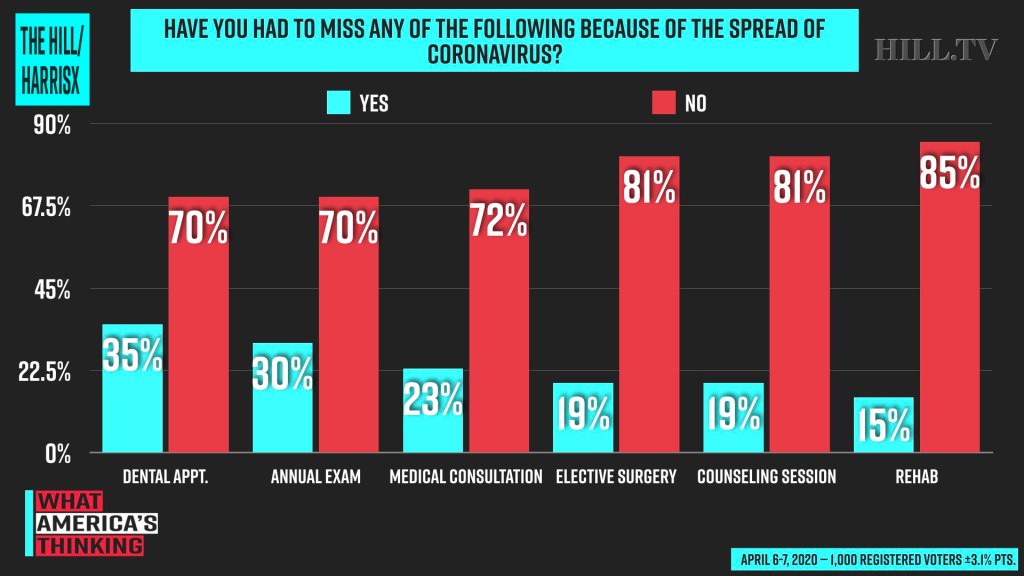As the coronavirus pandemic continues to take its toll on American healthcare, the peripheral medical impacts are beginning to come to light.
Voters are reporting an uptick in missing care such as dentist appointments, annual exams, and counseling sessions, amid the coronavirus crisis, a new Hill-HarrisX survey finds.

Thirty-five percent of registered voters in the April 6-7 poll said they have missed a dentist appointment due to the spread of COVID-19.
Thirty percent said they had to miss an annual exam, 23 percent said a medical consultation, 19 percent reported missing an elective surgery or a counseling session, and 15 percent said they missed rehab treatment.
While medical offices and services are closed due to social distancing measures, experts say putting off routine care can have longer-term effects that should be closely monitored.
Mallory Newall, director of research at Ipsos, points to the numbers seen among those who have missed appointments to treat mental health. In a recent Ipsos-Axios coronavirus tracker, more Americans have reported their emotional wellbeing and mental health situations getting worse over the course of the spread of the disease.
“I want to hone in on that number about people who are not seeking mental health treatment right now,” Newall told Hill.TV.
“That number is not so big because some people don’t seek therapy to begin with, but as you have more of the population reporting that their mental health and wellbeing are worsening, I wonder if we’re going to start seeing a shift in people that are actually prioritizing seeking treatment for mental health,” she added.
Prabhjot Singh, a physician and health systems expert, referenced a past national crisis to explain the possible ripple effects the coronavirus pandemic can have on American’s healthcare in general.
After the 2012 Hurricane Sandy disaster, research found that associations with temporary decreases in access to care to long-term impacts in conditions like hypertension.
“I think the real question becomes how are we redesigning the systems we have so that we can be more proactive,” Singh told Hill.TV.
The Hill-HarrisX poll was conducted online among 1,000 registered voters April 6-7. It has a margin of error of plus or minus 3.1 percentage points.
— Gabriela Schulte
hilltv copyright
